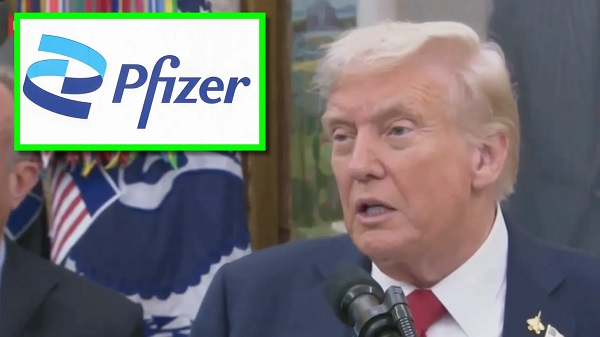Censorship Industrial Complex
BC College of Nurses and Midwives orders Amy Hamm to pay $93,639.80 and suspends her license for one month

The Justice Centre for Constitutional Freedoms announces that the disciplinary panel of the British Columbia College of Nurses and Midwives (College) has suspended Amy Hamm’s nursing license for one month, starting when she returns to nursing, and has ordered her to pay $93,639.80 in legal costs for her statements defending the right of women to access female-only spaces.
Ms. Hamm had worked in healthcare for over 13 years and had been promoted to be a nurse educator.
In 2020, she co-sponsored a Vancouver billboard that read, “I ♥ JK Rowling,” referencing the author’s support for women’s rights and the right of women to access female-only spaces, such as washrooms, crisis centres, sporting events, and prisons.
Following complaints from activists and a Vancouver city councillor, the billboard was removed, and two formal complaints were filed with the College accusing Ms. Hamm of transphobia and hate speech.
The College launched an investigation that led to a 332-page report examining Ms. Hamm’s public statements between 2018 and 2021, including tweets, articles, and podcasts.
The College’s Inquiry Committee argued that Ms. Hamm had made discriminatory and derogatory comments about transgender people while identifying as a nurse. After 22 days of hearings spanning a year and a half, the College’s disciplinary panel ruled that four of her statements amounted to unprofessional conduct.
Ms. Hamm has already appealed the College’s finding of unprofessional conduct to the Supreme Court of British Columbia. Her lawyer, Lisa Bildy, noted, “In our view, the panel made a number of legal and factual errors that make the decision unsound, and we look forward to arguing these points before the BC Supreme Court. We are now considering whether to appeal the penalty decision as well.”
“This decision effectively penalizes a nurse for expressing mainstream views aligned with science and common sense,” continued Ms. Bildy. “The Panel’s ruling imposes a chilling effect on free expression for all regulated professionals.”
Ms. Hamm said, “The College has chosen to punish me for statements that are not hateful, but truthful. I’m appealing because biological reality matters, and so does freedom of expression. I want to express my thanks to the thousands of Canadians who continue to fund my legal case through donations to the Justice Centre.”
Business
Bill C-8 would allow minister to secretly cut off phone, Internet service

From the Canadian Constitution Foundation
“I worry that this law could be used to secretly cut off political dissidents from their phone or Internet service on the pretense that they may try to manipulate the telecom system”
The Canadian Constitution Foundation is concerned about the civil liberties implications of the Carney government’s proposed cyber security bill, C-8, which would allow the minister of industry to secretly order telecommunications service providers like Telus, Bell and Rogers to stop providing services to individual Canadians.
The minister would be allowed to make such an order if she has “reasonable grounds to believe that it is necessary to do so to secure the Canadian telecommunications system against any threat, including that of interference, manipulation, disruption or degradation.”
An individual who does not comply, including by failing to keep the order secret, could face fines of up to $25,000 for the first contravention and $50,000 for subsequent contraventions. Businesses could face fines of up to $10 million for the first contravention and up to $15 million for subsequent contraventions.
The orders would remain secret indefinitely, with the minister required only to present an annual report to Parliament on the number of orders made and her opinion on their necessity, reasonableness and utility.
CCF Counsel Josh Dehaas said that the power to cut off the Internet or cellphone service of Canadians is a “very serious power that requires very strong safeguards, which are presently lacking in the bill.”
“While this power may be necessary in some cases to prevent cyber attacks, it also poses serious risks to civil liberties,” Dehaas said. “I worry that this law could be used to secretly cut off political dissidents from their phone or Internet service on the pretense that they may try to manipulate the telecom system,” Dehaas explained. “Such an action would violate our most cherished freedoms including free speech.”
CCF Litigation Director Christine Van Geyn said that the government cannot be trusted with such a power unless proper safeguards are in place.
“You may think that the idea of the government cutting off political dissidents from the necessities of life sounds far-fetched, but that’s exactly what happened during the 2022 Freedom Convoy protests in Ottawa,” she said. “The federal government ordered banks to freeze hundreds of bank accounts without any judicial authorization, cutting protesters off from their money in the middle of a very cold winter.”
“Although the Federal Court agreed with the CCF that freezing bank accounts this way violated the constitutional right to be secure against unreasonable searches and seizures, that kind of damage isn’t easily repaired,” Van Geyn added.
Ottawa has appealed the Federal Court’s finding. The CCF is awaiting a decision from the Federal Court of Appeal.
Dehaas said that Parliament should consider requiring either judicial pre-authorization or an immediate, automatic judicial review of any decision to cut off an individual or business from their Internet or phone.
The CCF is also concerned that Bill C-8 would allow the minister to weaken telecommunications companies’ encryption standards, allowing for unconstitutional access to Canadians’ private information.
Finally, the CCF is concerned that the bill could allow the minister or any person designated by the minister to engage in unconstitutional searches.
Joanna Baron, the CCF’s Executive Director, said that Canadians must be vigilant about their constitutional rights and freedoms because they can be easily taken away, especially in times of crisis.
“I would encourage Canadians to fight for their freedoms, whether it’s by taking the CCF’s free privacy course, signing up for our weekly Freedom Update newsletter or becoming a monthly donor,” Baron said.
“Concerned Canadians are also encouraged to write to their MPs using our form letter, to tell them to amend these bills to ensure Canadians’ rights to privacy and free expression are protected,” Baron added.
Business
Elon Musk announces ‘Grokipedia’ project after Tucker Carlson highlights Wikipedia bias

From LifeSiteNews
By Joseph Quinn
Wikipedia co-founder Larry Sanger explained how Wikipedia systematically blacklists and “deprecates” conservative sources. Wikipedia remains one of the most heavily used information sources online and is integrated with Google search results.
Elon Musk has announced plans to build “Grokipedia,” a new open-source online encyclopedia under his artificial intelligence company xAI.
“Will be a massive improvement over Wikipedia,” Musk wrote on X. “Frankly, it is a necessary step towards the xAI goal of understanding the Universe.”
We are building Grokipedia @xAI.
Will be a massive improvement over Wikipedia.
Frankly, it is a necessary step towards the xAI goal of understanding the Universe. https://t.co/xvSeWkpALy
— Elon Musk (@elonmusk) September 30, 2025
The announcement came days after Tucker Carlson’s interview with Larry Sanger, a co-founder of Wikipedia and a vocal critic of the organization since his departure in 2002.
Larry Sanger built Wikipedia as an unbiased repository of the world’s knowledge, and then stood helplessly by as activists and intel agencies turned it into the most comprehensive propaganda op in human history. There’s nothing more corrupt.
(0:00) The Origins of Wikipedia… pic.twitter.com/J59oEejCG2
— Tucker Carlson (@TuckerCarlson) September 29, 2025
Sanger explained how Wikipedia systematically blacklists and “deprecates” conservative sources. Seeing LifeSiteNews on the list, Carlson said that the platform has become “a weapon of ideological, theological war.”
Musk echoed Sanger’s criticisms, affirming Judicial Watch president Tom Fitton’s claim that “Wikipedia is a smear machine for the Left.”
💯
— Elon Musk (@elonmusk) September 30, 2025
Musk later amplified memes promoting Grokipedia, calling it “an open source knowledge repository that is vastly better than Wikipedia.”
Join @xAI and help build Grokipedia, an open source knowledge repository that is vastly better than Wikipedia!
This will be available to the public with no limits on use. https://t.co/3CnfrvNIpI
— Elon Musk (@elonmusk) September 30, 2025
He also affirmed Sanger’s “Nine Theses,” which call for dismantling Wikipedia’s centralized editorial control.
Some good suggestions from the co-founder of Wikipedia https://t.co/bgwBmi6uXN
— Elon Musk (@elonmusk) September 30, 2025
Musk has not released technical details of the Grokipedia project but said that Grok AI will be independent of Wikipedia “by the end of the year.”
Images of a potential logo were also shared on his X account.
Wikipedia should have just taken that $1 billion offer from Elon Musk, it’s too late, the rival is coming: Grokipedia! pic.twitter.com/cLBKfPRgyO
— SMX 🇺🇸 (@iam_smx) September 30, 2025
Wikipedia remains one of the most heavily used information sources online and is integrated with Google search results. Critics argue that its governance model allows biased editors – described as “ideologically-driven thought police” – to shape content and suppress dissenting viewpoints, particularly on political, cultural, and religious topics.
A similar initiative called “Infogalactic” was launched in 2016. A “fork” of Wikipedia, it was designed to decentralize control and allow multiple perspectives. While Infogalactic never reached Wikipedia’s scale, it established a model for alternative knowledge repositories.
Attracting a critical mass of editors and establishing credibility remain significant challenges facing such alternatives. Musk’s involvement signals a higher-profile challenge to Wikipedia’s dominance, combining xAI’s technological resources with his public platform on X.
Musk has not provided a clear timeline, but the announcement positions xAI to mount a direct challenge to Wikipedia’s dominance of the information ecosystem.
-

 Censorship Industrial Complex2 days ago
Censorship Industrial Complex2 days agoCanada To Revive Online Censorship Targeting “Harmful” Content, “Hate” Speech, and Deepfakes
-

 Alberta2 days ago
Alberta2 days agoOrthodox church burns to the ground in another suspected arson in Alberta
-

 Fraser Institute2 days ago
Fraser Institute2 days agoAboriginal rights now more constitutionally powerful than any Charter right
-

 Alberta1 day ago
Alberta1 day ago$150 a week from the Province to help families with students 12 and under if teachers go on strike next week
-

 Business2 days ago
Business2 days agoNew PBO report underscores need for serious fiscal reform in Ottawa
-

 Agriculture2 days ago
Agriculture2 days agoCarney’s nation-building plan forgets food
-

 Business1 day ago
Business1 day agoPfizer Bows to Trump in ‘Historic’ Drug Price-Cutting Deal
-

 International2 days ago
International2 days agoArab and Muslim nations rally behind Trump’s Gaza peace plan





